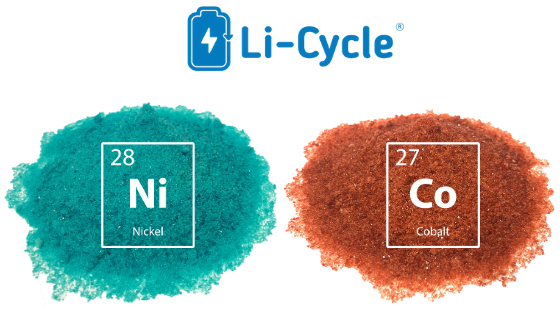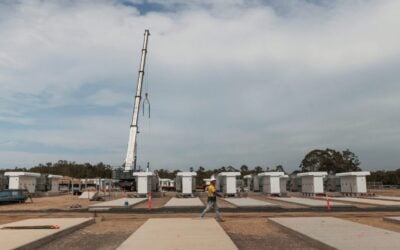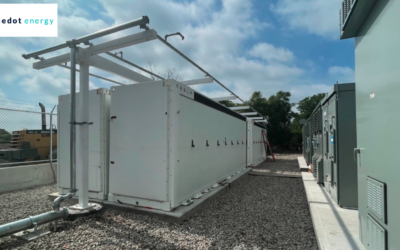
Equity investors have already committed more than US$300 million to lithium battery recycler Li-Cycle’s plan to go publicly-listed through a special purpose acquisition company (SPAC) merger.
The Canada-headquartered company signalled its intent to list on the New York Stock Exchange in mid-february, through a proposed business combination transaction with SPAC Peridot Acquisition Corp. Just before the end of March, the parties involved registered a Form F-4 with the US Securities and Exchange Commission (SEC).
Li-Cycle said that its two-step process for recycling achieves around 95% recovery of all the materials used in lithium batteries from sectors including electric vehicles (EVs) and stationary energy storage systems as well as others. This is much higher than a claimed 50% recycling rate more typically seen across the industry, while the company also highlighted in its F-4 that this high rate keeps it in line for proposed European Union regulations for 95% recovery of materials including cobalt that could be introduced by 2025.
Given the growing need for batteries, the desire for ESG-friendly supply chains and the control of intellectual property for its services that it holds, the company’s management believes it can achieve profitability in the future, but at this stage it requires significant capital and support to fuel that trajectory. It also wants to get a strong foothold of market share in a sector that it said could become highly competitive in the next few years.
Try Premium for just $1
- Full premium access for the first month at only $1
- Converts to an annual rate after 30 days unless cancelled
- Cancel anytime during the trial period
Premium Benefits
- Expert industry analysis and interviews
- Digital access to PV Tech Power journal
- Exclusive event discounts
Or get the full Premium subscription right away
Or continue reading this article for free
Prior to 2020, the company was pre-commercial and largely pre-revenues. With the start of commercial operations in 2020, the company’s revenues leaped from US$64,000 in the 12-month period up to 31 October 2019 to US$1,059,000 by the end of the same period last year, growth of more than 1,500%. However, due to the cost of scaling up operations including US$3 million for hiring and retaining staff and the opening of facilities in both Ontario, Canada and Rochester, New York, its net losses rose from US$5.5 million in 2019 to about US$12.5 million in 2020. Li-Cycle’s Rochester facility can recycle up to 5,000 tonnes of spent lithium battery materials per annum, having opened up in December 2020, adding to a further 5,000 tonne annual capacity across its other facilities, and a 5,000 tonne expansion is planned at the Rochester site by 2022.
The company has already brokered off-taker deals and partnerships with big customers including mining giant Glencore, which accounted for a large share of 2020 revenues and a marketing deal with mining, minerals and energy finance and logistics company Traxys. Li-Cycle management said that it expects the Traxys partnership to be worth around US$300 million per year in revenues. Costs ahead to be incurred include US$175 million required to scale-up operations and build out further facilities in Rochester.
As previously reported by this site, the business combination could see Li-Cycle receive about US$615 million in gross transaction proceeds, although a portion of that could be redeemed by Peridot shareholders. A group of investors have committed US$315 million as private investment in equity (PIPE) financing toward the transaction for the deal, which Li-Cycle and Peridot anticipate will close in the second quarter of this year.
To learn more about Li-Cycle’s two-step mechanical reduction and hydrometallurgical process for recycling batteries, read the 2019 article “Batteries need to be ‘renewable’ too: why recycling matters now,’ authored by Stefan Hogg, an operations and business development representative at the company.
Stem Inc SPAC vote to be held in late April
In other SPAC news, ‘intelligent energy storage’ company Stem Inc’s proposed combination with SPAC Start Peak took another step forward in late March as a Form S-4 relating to the merger was declared effective by the SEC. A Special Meeting will be held to approve the combination on 27 April, conducted live online via webcast.
In a recent Guest Blog article for this site, Charles Lesser, a partner at cleantech financial advisory group Apricum wrote about the various risks and rewards of ‘the SPAC Track’, highlighting Stem Inc as an example of a clean energy industry company with a proven business model that sees access to capital as the “final impediment to growth”.





